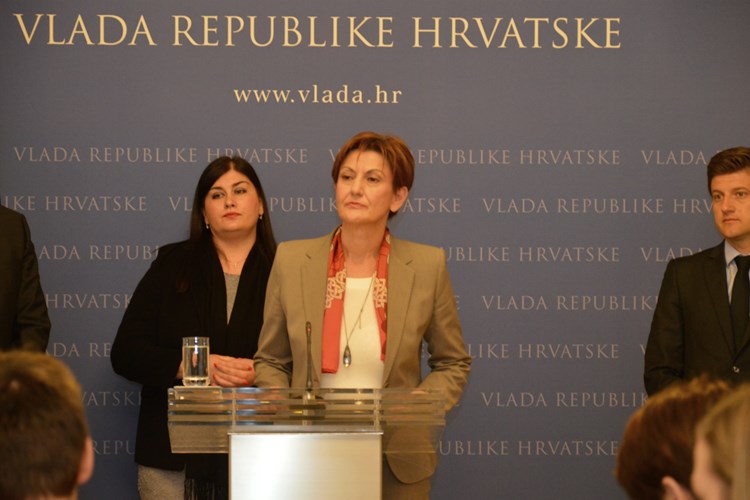- Published: 12.01.2017.
Gov't starts drawing up national reform programme for 2017
The Croatian government on Thursday held a preliminary meeting on the drawing up of a national reform programme, whose first draft should be completed by the end of January.
Addressing a news conference after a government session, Economy Minister Martina Dalic recalled that all EU member countries were expected to submit their national reform programmes and convergence programmes by the end of April.
"We have launched preparations earlier so that we could have our reform proposals ready when we receive an assessment by the European Commission after an in-depth analysis that is expected in February. Until now reform programmes were a response to EC findings, but now the government is taking a proactive approach, preparing in advance," Dalic said.
One of the most important and most comprehensive reforms that must be implemented is the reform of public administration, Public Administration Minister Ivan Kovacic said.
The government adopted an action plan for the implementation of the reform last December and forwarded it to the EC for evaluation. If the plan is positively assessed, HRK 900 million will be made available to Croatia for its implementation, Kovacic said.
According to Finance Minister Zdravko Maric, the National Reform Programme will include a strategy for public debt management. The document will be put on the government's agenda by the end of January and will include a schedule for the payment of financial obligations and ways of managing public debt, he said.
Regional Development and EU Funds Minister Gabriela Zalac said the programme would also include simplified procedures for the absorption of money from EU funds. This should additionally boost the use of EU funds, she said, adding that in 2016 Croatia was for the first time a 100% net recipient of EU funding.
"All reform measures that have been proposed are designed to ensure strong support for economic growth and for making use of the current favourable macroeconomic trends to achieve an even faster economic growth," Dalic said.
EU members are expected to send their national reform programmes and convergence programmes to the European Commission by the end of April, and based on those documents, the EC will make draft recommendations which are to be adopted by the Council of the EU.
A national reform programme defines the situation and plans for the implementation of key structural government policies, and a convergence plan determines key characteristics of national macroeconomic and fiscal policies.
Those activities are part of a process of regular reporting and alignment of the member-countries' economic policies with jointly defined goals and regulations of the EU. Non-compliance results in sanctions, including the freezing of EU funds intended for a member-state.
Text: Hina
